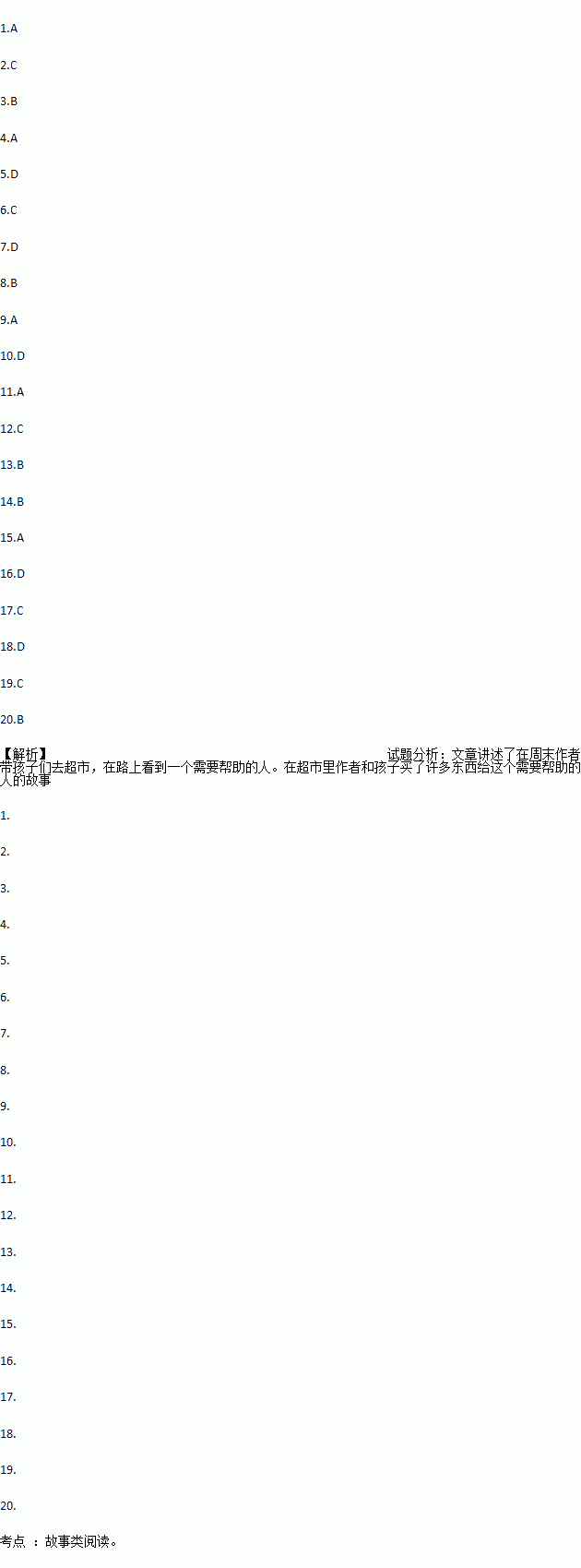题目内容
My kids and I were heading into the supermarket over the weekend. On the way, we spotted a man holding a piece of paper that said, “______ my job. Family to Feed.”
At this store, a ______ like this is not normal. My 10-year-old noticed him and make a ______ on how bad it must be to have to stand ______ in the cold wind.
In the store, I asked each of my kids to ______ something they thought our “friend” there would ______. They got apples, a sandwich and a bottle of juice. Then my 17-year-old suggested giving him a ______. I thought about it. We were ______ on cash ourselves, but…well, sometimes ______ from our need instead of our abundance(充裕) is _____ what we need to do! All the kids ______ something they could do away with for the week.
When we handed him the bag of ______, he lit up and thanked us with ______ eyes. When I handed him the gift card, saying he could use it for ______his family might need, he burst into tears.
This has been a wonderful ______ for our family. For days the kids have been looking for others we can ______! Things would have playedout so ______ if I had simply said, “No, we really don’t have ______ to give more.” Stepping out not only helped a brother in ______, it also gave my kids the ______ taste of helping others. It’ll go a long way with them.
1.A. Lost B. Changed C. Quit D. Finished
2.A. condition B. place C. sight D. show
3.A. suggestion B. comment评论 C. decision D. call
4.A. outside B. proudly C. by D. angrily
5.A. draw B. say C. arrange D. pick
6.A. order B. supply C. appreciate D. discover
7.A. dollar B. job C. hot meal D. gift card
8.A. easy B. low C. soft D. loose
9.A. giving B. saving C. spending D. begging
10.A. yet B. even C. still D. just
11.A. declared宣布 B. shared C. ignored忽略 D. expected
12.A. toys B. medicine C. food D. clothes
13.A. sleepy B. watery C. curious D. sharp
14.A. whoever B. whatever C. whichever D. whenever
15.A. experience B. example C. message D. adventure
16.A. rely on B. respect C. learn from D. help
17.A. suddenly B. vividly C. differently D. perfectly
18.A. time B. power C. patience D. money
19.A. fear B. love C. need D. memory
20.A. strong B. sweet C. strange D. simple


 running twice as fast.
running twice as fast.